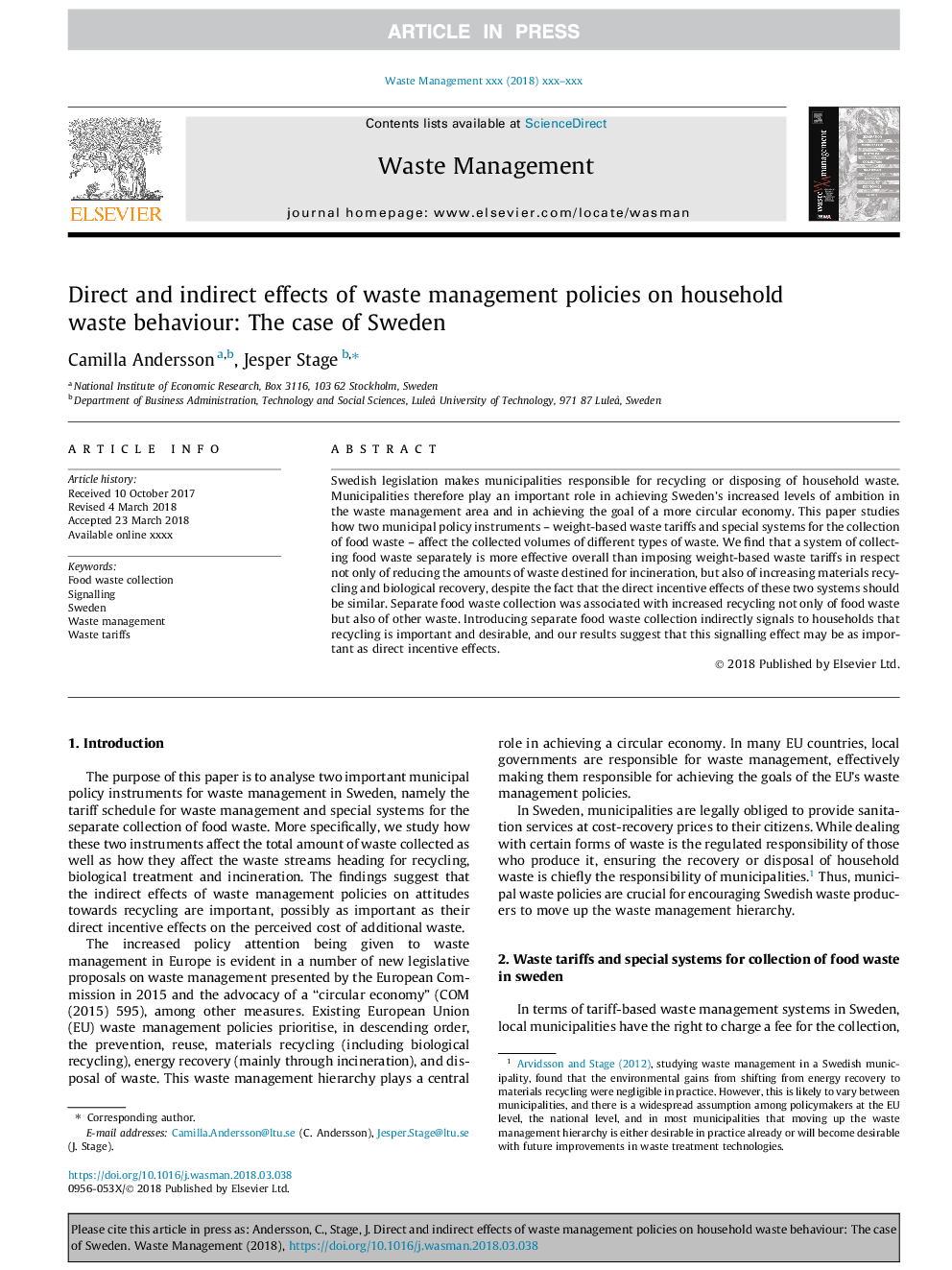| Article ID | Journal | Published Year | Pages | File Type |
|---|---|---|---|---|
| 8869562 | Waste Management | 2018 | 9 Pages |
Abstract
Swedish legislation makes municipalities responsible for recycling or disposing of household waste. Municipalities therefore play an important role in achieving Sweden's increased levels of ambition in the waste management area and in achieving the goal of a more circular economy. This paper studies how two municipal policy instruments - weight-based waste tariffs and special systems for the collection of food waste - affect the collected volumes of different types of waste. We find that a system of collecting food waste separately is more effective overall than imposing weight-based waste tariffs in respect not only of reducing the amounts of waste destined for incineration, but also of increasing materials recycling and biological recovery, despite the fact that the direct incentive effects of these two systems should be similar. Separate food waste collection was associated with increased recycling not only of food waste but also of other waste. Introducing separate food waste collection indirectly signals to households that recycling is important and desirable, and our results suggest that this signalling effect may be as important as direct incentive effects.
Keywords
Related Topics
Physical Sciences and Engineering
Earth and Planetary Sciences
Geotechnical Engineering and Engineering Geology
Authors
Camilla Andersson, Jesper Stage,
